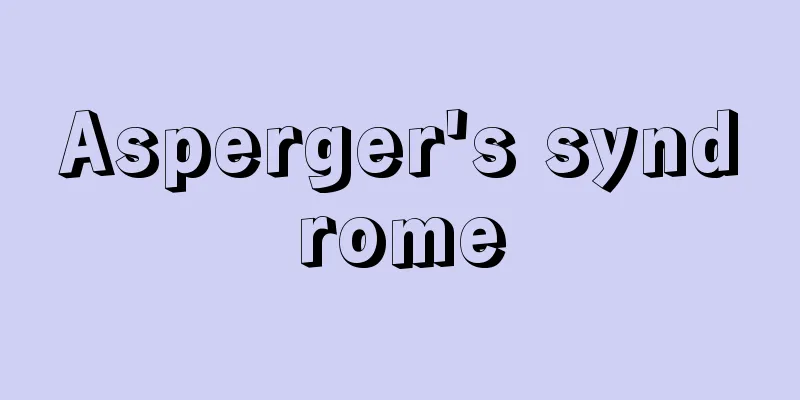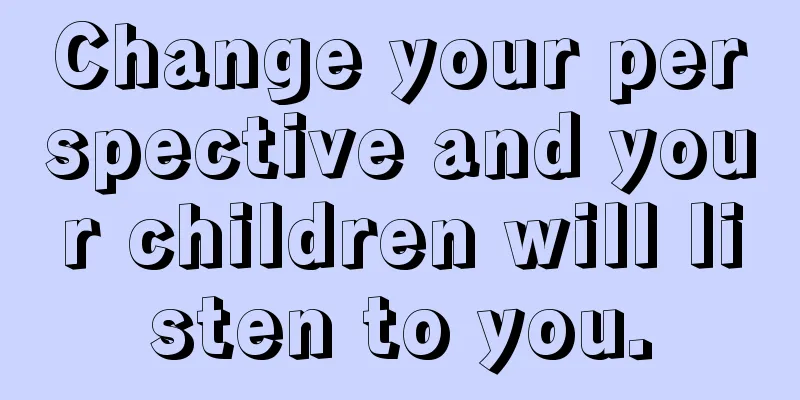Asperger's syndrome

|
The symptoms of patients with Asperger's syndrome are similar to those of patients with autism, but patients with Asperger's syndrome have higher IQs and better language skills. If you want to distinguish patients with Asperger's syndrome, you need to understand the characteristics of this disease. People in this group have social communication disorders, have a high interest in a certain thing, and have higher writing skills than ordinary people. Let's learn more about it in detail. 1. Asperger's Syndrome Asperger's syndrome: In the 1940s, Hans Asperger, a pediatrician from Vienna, studied a group of little boys who were a little different from other children. These boys have similar problems with social interaction and communication as children with autism. However, they are as smart as or even smarter than the average child and have very good language skills. Dr. Eisberg called this condition "isolated psychopathy." 2. Features This phenomenon was widely ignored by mental health professionals until nearly a decade after Dr. Ellsberg's work was translated into English. Today, this autistic psychopathy is called Asperger's syndrome. The main behavioral characteristics of Asperger's syndrome are: 1. Have social and communication barriers 2. There will be repetitive, delusional behavior 3. Extremely passionate about a particular thing or interest 4. Have good grammar and vocabulary skills, sometimes even better than the average person 5. Have normal cognitive development 6. The intelligence performance is the same as that of normal people, or higher than the average intelligence of normal people 3. Diagnostic Criteria DSM-IV diagnostic criteria for Asperger's disorder: A. Social interaction is qualitatively impaired, as evidenced by at least two of the following: (1) Significant impairment in using a variety of nonverbal behaviors (e.g., eye gaze, facial expressions, body posture, and gestures) to facilitate social interactions (2) Failure to develop peer relationships commensurate with their development level (3) Lack of spontaneous desire to share happiness, interests, or achievements with others (e.g., not showing off, carrying, or pointing out things you like to others) (4) Lack of social or emotional interaction B. The pattern of behavior, interests, and activities is quite restricted, repetitive, and stereotyped, as evidenced by at least one of the following: (1) Involving one or more stereotyped and restricted interest patterns, at least one of which is abnormal in intensity or in the subject matter. (2) Apparently inflexible fixation on specific, nonfunctional routines or rituals (3) Stereotyped and repetitive motor movements (e.g., hand or finger flapping or twisting, or complex whole-body movements) (4) Continuously focusing on one part of an object C. The disturbance causes clinically significant impairment in social, occupational, or other important areas of functioning D. No clinically significant general language delay (e.g., able to use single words by age two, able to use short communicative sentences by age three) E. No clinically significant delay in cognitive development or age-appropriate self-help skills, adaptive behavior (except those related to social interaction), and childhood curiosity about the environment. F. Does not meet diagnostic criteria for another specified pervasive developmental disorder or schizophrenia. |
Recommend
What to do with children after divorce?
Marriage problems are a difficult problem faced b...
Causes and treatment of lymphadenitis in children
It is really a headache for young parents when th...
Blue eye bags in children
For a baby, physical health is the focus of the w...
What is the cause of chronic sinusitis in babies?
As a mother, you know your baby's physical co...
What is the reason for babies to tie up the horse post?
The hitching post usually grows in front of or be...
How to solve the problem of breastfeeding baby not eating bottle
Many mothers will find that they have been breast...
What are some brain-boosting recipes for kids?
Since children are in the developmental period, i...
What is the cause of nose bleeding in a two and a half year old baby?
During the growth of children, many parents will ...
How much milk is best for a one and a half year old baby to drink every day?
We all know that drinking milk is something that ...
Nursing methods for seven-month-old premature babies
We all know that the normal pregnancy period for ...
How to care for baby neck eczema
Many babies will develop eczema during the confin...
What are some ways to grow taller at the age of 12?
People with short stature always look like childr...
What are the diagnostic criteria for cerebral palsy in children?
Every parent hopes that their children can grow u...
Tips to relieve baby's stuffy nose
When the baby's nose is blocked, it will be d...
What to do about childhood asthma?
I believe everyone is familiar with the disease o...









